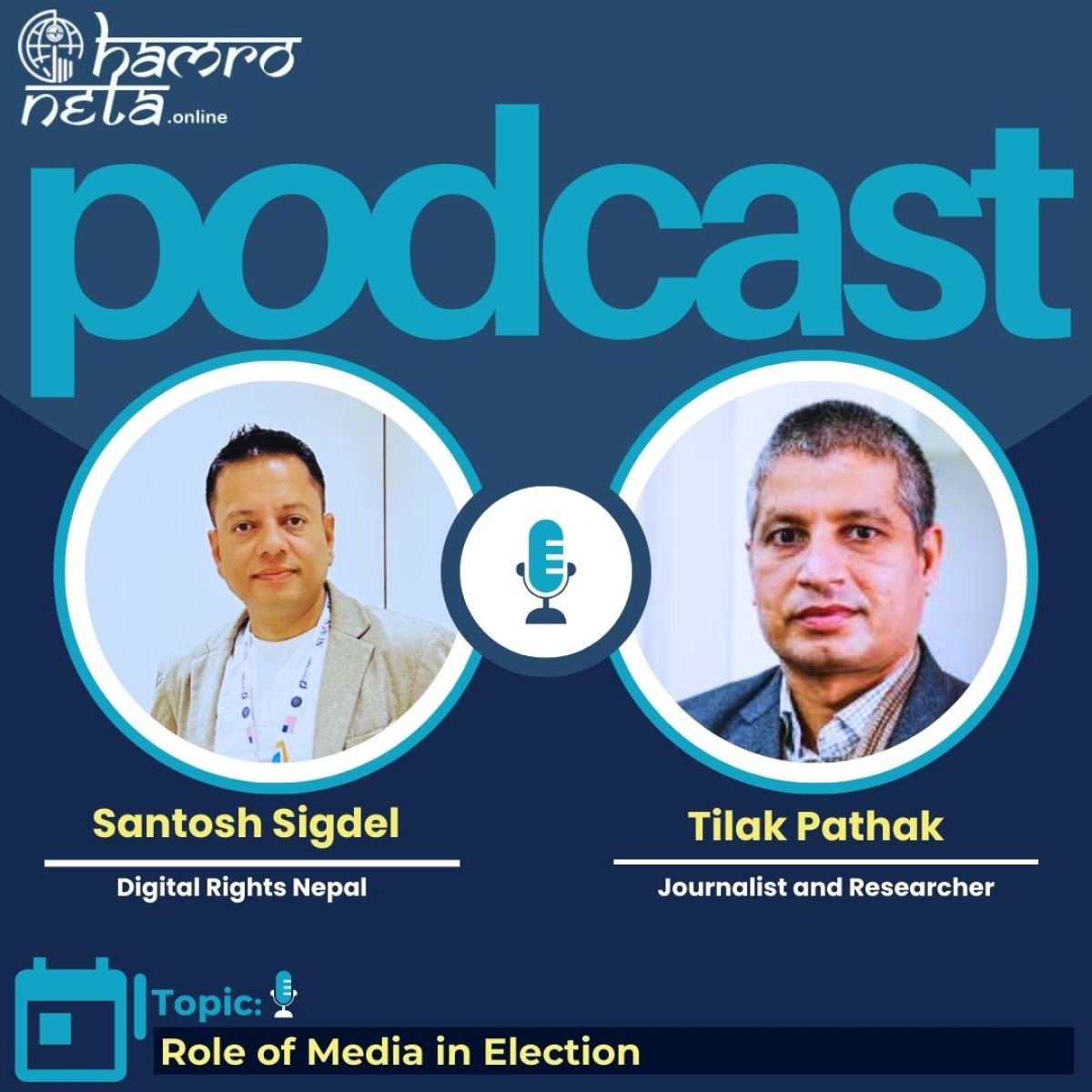
In a recent podcast episode featuring Santosh Sigdel and Tilak Pathak, the critical role of media during elections was extensively discussed. The conversation emphasized the importance of responsible journalism and its power to shape a transparent and informed democratic process. Here's a deeper dive into the discussion:
Media is often referred to as the "fourth body" of a state, underscoring its indispensable role in a democracy. During elections, this responsibility amplifies as the media becomes a bridge between candidates, political parties, and the public. Its duties include:
While the media communicates election-related information, it operates within societal and institutional constraints. People expect a lot from the media, but as a product of society, it faces limitations, weaknesses, and external pressures.
The podcast highlighted the rising number of media platforms and their growing dependence on event-based reporting, often at the expense of analytical or investigative journalism. Key challenges include:
The transition from print to digital platforms has reshaped the media landscape. Social media's gatekeeping role and its impact on traditional media were central to the discussion. While mainstream outlets have adopted alternative platforms, they often struggle to differentiate their content from social media trends.
Positive Trends:
Concerns:
Investigative journalism, which aims to unveil impactful stories, has seen limited success. While such reports are occasionally published, their societal impact remains muted due to inaction by stakeholders. Nevertheless, the importance of continuing to write and report, irrespective of immediate outcomes, was stressed.
Election-related media practices are governed by a code of conduct set by the Election Commission. However, enforcement and adherence remain weak. Instead of imposing regulations, he suggested that stakeholders develop their own ethical guidelines to ensure better compliance and accountability.
A national perception survey (2004–2022) revealed declining trust in media post-2020, largely attributed to the influence of social media and the erosion of journalistic integrity. To regain credibility, media must:
The discussion concluded with an optimistic note: when media becomes impactful, elections become more effective and transparent. This, in turn, leads to the election of better leaders and stronger political policies. For Nepal, the challenge lies in transforming its media into a pillar of impartiality, transparency, and public trust to ensure a brighter democratic future.
By fostering a responsible media ecosystem, Nepal can aspire to elections that are not only impactful but also reflective of the will of an informed and engaged electorate.
This blog post is based on a podcast episode featuring discussions between Tilak Pathak and Santosh Sigdel on "Role of Media in Election". To watch the full episode, follow the link: https://youtu.be/qhaBX1PXsxk?feature=shared
Comments